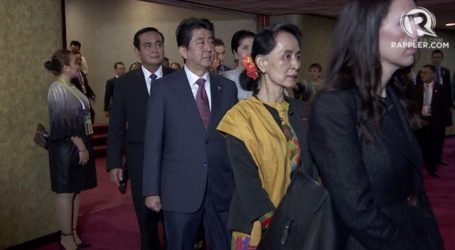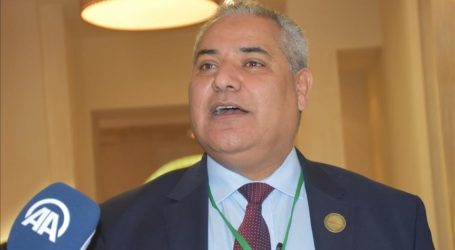FEARS OF FOOD SHORTAGES IN CENTRAL AFRICAN REPUBLIC
 Bangui, 17 Jumadil Awwal 1434/29 March 2013 (MINA) – New authorities in the Central African Republic struggled to restore order in the coup-hit capital on Thursday (28/3) as the UN warned tens of thousands of people faced going hungry after days of looting.
Bangui, 17 Jumadil Awwal 1434/29 March 2013 (MINA) – New authorities in the Central African Republic struggled to restore order in the coup-hit capital on Thursday (28/3) as the UN warned tens of thousands of people faced going hungry after days of looting.
Modern Ghana media as monitod by Mi’raj News Agency (MINA) reported, drinking water and electrical power were still cut off in parts of Bangui after Michel Djotodia and his Seleka coalition seized the city on Sunday, forcing president Francois Bozize to flee.
“The crisis has worsened an already difficult humanitarian situation,” the UN Office for the Coordination of Humanitarian Affairs (OCHA) warned in a statement, adding that the centre and north of the country of 4.5 million people were also affected.
In Bangui, “prevailing insecurity is hampering humanitarian efforts and the provision of help and notably medical assistance,” OCHA said, adding that “more than 80,000 people are in danger” of running out of food.
In a sign that Seleka were seeking to maintain some stability, Prime Minister– Nicolas Tiangaye — who was named premier under peace accords signed in Libreville in January — said on Wednesday (27/3) he had been reappointed. A new government is now expected to be formed.
The International Committee of the Red Cross reported Wednesday that its depots in the country had been stripped by looters, who also ransacked shops and businesses in the days after the coup.
After days of pillage that saw groups of armed men roaming the streets, residents in the capital were fearful of returning to work despite a call by new strongman Djotodia for people to do so.
Hospitals tried to get up and running without doctors, and sometimes still no electricity. OCHA coordinator Zakaria Maiga stressed that the lack of power made medical care difficult and urged staff to provide it as best they could.
The Seleka — which means “alliance” — were seeking to restore security by patrolling with the help of the regional FOMAC military force deployed in the country by the Economic Community of Central African States (ECCAS).
President Idriss Deby Itno of Chad, who currently chairs ECCAS, announced Thursday that a regional summit on the crisis will be held on April 3 in N’Djamena, according to Chadian national radio.
“The summit in the Chadian capital will study means of returning to the Libreville peace accords” signed in Gabon last January after a first Seleka offensive led to a power-sharing deal, the radio said.
The rebels announced Wednesday that anyone carrying a weapon had to register by the end of the day. “They will be given an ID badge. Anyone who hasn’t done this will be breaking a law and this law will be strictly enforced,” Seleka spokesman Gazam Betty said.
But dozens of Seleka forces settled in the Bangui camps of Kasai and De Roux had no badges on Thursday.
“We are setting about putting the Seleka people in barracks,” said Tiangaye, a respected lawyer who was a foe of Bozize and a former human rights activist.
“Many people, false Seleka members, are at large in the town terrorising the population and bandits have become mixed up in it, and this therefore only worsens the situation,” he added.
Djotodia, an enigmatic Soviet-trained figure who spent years as a civil servant and diplomat before founding a rebel movement in 2005, said he intended to keep Tiangaye as premier on Monday.
The coup leader, who dissolved parliament and announced he would rule by decree, has stressed he would abide by the spirit of national unity enshrined in the Libreville deal. The Seleka forces mounted their swift offensive on Bangui and ousted Bozize on the grounds that his regime had failed to honour the peace agreement.
“The context has changed but the players are the same,” Tiangaye said, adding that he would soon unveil an inclusive cabinet line-up.
But Djotodia also said fresh elections would not be held for another three years and did not rule himself out of the polls.
Tiangaye, who was Seleka’s choice after the January deal, admitted that his relations with Djotodia would be far better than with Bozize.
He also urged the foreign community to continue helping his country, which is one of the poorest in the world. Its resources of uranium, gold and diamonds have never been exploited.
“Without the international community, we’ll never make it,” Tiangaye said. Bozize, who also came to power in a coup in 2003, has surfaced in Cameroon, where authorities have said he is awaiting relocation to another country. (T/P09/P03)
Mi’raj News Agency (MINA)





